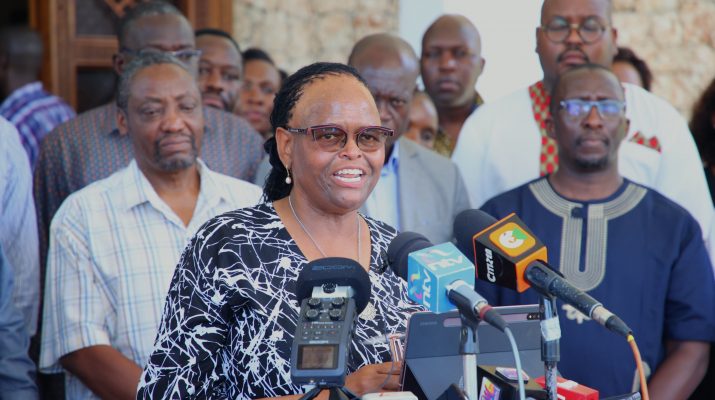By Lauryne Akoth
On Tuesday 27th February, the National Council on the Administration of Justice held a meeting in Mombasa, chaired by Chief Justice Martha Koome. The intent was to strategize on upscaling measures in the fight against graft, enhancing accountability, and improving service delivery to Kenyans.
Addressing the press, Koome noted that corruption undermined accountability and eroded public trust. She acknowledged that despite several measures taken to combat graft in policy legal and administrative reforms, corruption continues to compromise public institutions and adversely impact service delivery and economic growth.
“We will strengthen Inter-Agency collaboration and coordination to seal information and communication gaps among ourselves and facilitate the fight against corruption that thrives when each of us is operating individually as an asylum,” said the Chief Justice.
She also reaffirmed the NCAJ’s commitment to efficiently and effectively coordinate the justice sector in the fight against graft.
According to the communiqué by the NCAJ, several resolutions were made in alignment with their anti-corruption agenda. They include collective efforts in providing strategic leadership in the fight against graft, prioritizing systems and processes examination in justice sector agencies. This would aid in identifying corruption risk areas and taking remedial measures to seal opportunities for corruption and digitise and automating processes within public institutions to secure efficiency, accountability, and seamless service delivery
Other key resolutions as per the communiqué include automating instant traffic fines to address traffic offences, enhancing the quality, expeditious and procedural arrests, investigation, prosecution, and trial of corruption-related crimes, and adopting and implementing efficient case management systems across all agencies.
The chief justice also acknowledged the short-staffing in the judiciary and reaffirmed the judiciary’s efforts to increase its capacity. ” The establishment for judges in the judiciary is 200 but we are currently 78. We are in the process of recruiting other 36 judges. However, before we increase the capacity we can make do with what we have by leveraging collaboration between agencies.”
Lastly, the chief Justice concluded by asserting NCAJ’s resolve to augment public engagement through Court user committees nationwide to address emerging challenges, rebuild public trust, and fast-track the conclusion of anti-corruption cases at the grassroots level.
“NCAJ will develop a framework and roadmap to guide the short, medium, and long-term strategies by all actors to address corruption and enhance accountability and seamless delivery of services, culminating in a national anti-corruption conversation,” she remarked.

